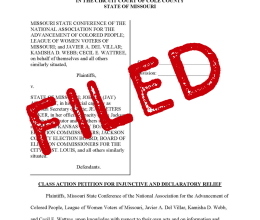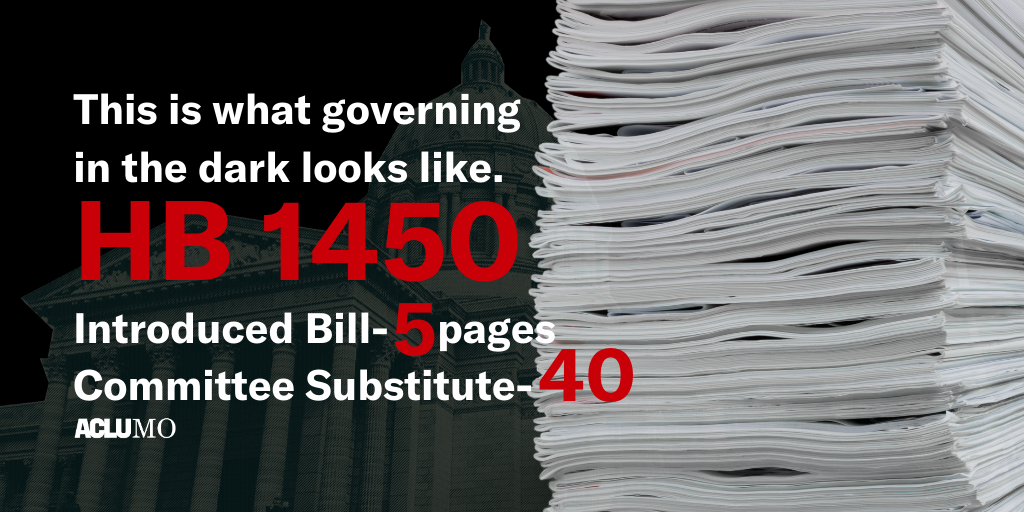
Jefferson City—Today, the Missouri Legislature narrowly expanded voting rights in Missouri. Legislators added provisions allowing voters, in 2020, if they are at high risk for COVID-19, to vote absentee without a notary.
This measure falls short of answering the challenge COVID-19 presents. If a voter is at high risk for COVID-19, they may cast an absentee ballot without a notary. All other Missouri voters may request a mail-in ballot but that ballot will need to be notarized, a process fraught with difficulty as voters attempt to keep their distance from others during the pandemic. Ballots cannot be requested online causing another barrier and cost to voters. All the measures agreed to by the Missouri Legislature will expire at the end of 2020.

“We are glad to see the Missouri Legislature act to expand the right to vote, we hope they will continue to do so in sessions to come. Adding mail-in voting is a new option for Missouri, no state has ever removed the measure after the fact due to wide voter support. The legislation that passed today was agreed to at 4 am this morning, with no public input. It was done by a legislature that continued to meet under the cover a pandemic. It was done in backroom deals that pitted voting rights against criminal justice reform. We should be alarmed they used the pandemic to pass a draconian crime bill SB 600, which will undoubtedly expand mass incarceration, disenfranchise more Missourians, and cost the taxpayer millions. Undermining the will of the voters that spoke out overwhelmingly with Clean Missouri to address gerrymandering by passing SJR 38, crafted to confuse and reinstate the status quo is unacceptable. This is not good governance and it falls far below what Missourians should expect from their government” said Sara Baker, Policy Director at the ACLU of Missouri.
The legislature moved the bill rapidly through the legislature in response to a lawsuit filed by the ACLU of Missouri on April 17th. In that suit, the ACLU argued that voters should be able to vote absentee, without a notary, in order to keep voters safe throughout the pandemic.

